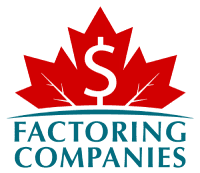A Complete Guide to Invoice Factoring
The Easiest Way for Today’s Businesses to Solve Their Cash Flow Problems
Invoice factoring is a convenient, fast, flexible, and accessible financing solution available to both fully established businesses and start-ups. It’s a cost-effective and efficient way to raise capital without taking on additional debt. In this guide, you’ll learn everything you need to know about factoring, including:
The best way to ensure that your overall experience with factoring is as convenient and profitable as possible is to educate yourself on the ins and outs of the entire process and everyone involved in it. That way, you know your business is getting the cash flow it needs to operate and grow and that you have partnered with a factoring company you can trust to help you reach your financial goals.
Once you make it to the end of this comprehensive guide, you’ll have all the information and knowledge you need to make informed decisions about everything from the factoring company you choose to the type of factoring that would benefit your business most.
In This Guide
Invoice Factoring is a convenient, fast, flexible, and accessible financing solution available to both fully established businesses and start-ups. It’s a cost-effective and efficient way to raise capital without taking on additional debt. In this guide, you’ll learn everything you need to know about factoring, including:
Executive Summary
Invoice factoring is one of the easiest and most popular ways for companies of all sizes to improve their financial standing – and fast! Also referred to as accounts receivable factoring or invoice financing, this alternative financing solution pays companies upfront for money already owed to them – the money tied up in their AR processes.
So, what is factoring? Factoring is a financing solution that fills the cash flow gap left by slow-paying clients by giving companies an upfront and immediate advance on their invoice payments. It is one of the fastest, easiest, and most affordable ways for companies to obtain funding for important needs like payroll, business expansion, and other operating expenses. Companies can speed up their cash flow without having to wait 90 days or longer for their customers to pay them. Plus, because factoring is not a loan, it is debt-free. Receivables financing can be a game-changer for businesses that need quick access to working capital.
Factoring Overview
If you’re looking for a definition of invoice factoring, it’s “the purchase of accounts receivable at a discount.” It is a proven funding solution, especially for growing businesses, and has been for centuries.
In fact, the roots of factoring can be traced back to maritime trading by the Phonecians in the Ancient World. Historians believe these early travellers, who sailed the Medetranian from roughly 3100 BCE to 539 BCE, engaged in trading via state-sanctioned trade centers and temples that also helped facilitate deals by providing funding. The concept evolved and took many forms. For instance, Hammurabi’s Code, the stone etchings from 1780 BCE that contain some of the earliest-recorded laws, discusses rules related to funding and documentation that are quite similar to those used today. Promissory notes became popular around this time, and later, third-party collectors and the buying and selling of promissory notes came into the mix.
However, it wasn’t until 14th-century London that the cloth trade brought forth the more modern concept of factoring. There, in a marketplace called Blackwell Hall, a group of people known as “factors” provided cloth manufacturers with raw materials, credit, and opportunities to sell their materials to drapers and merchants. Factoring then took to the seas yet again and became a common way to fund voyages, particularly those that set off and anticipated a profit. As the concept reached North America, it emerged as “factories.” York Factory on the shore of Hudson Bay in Manitoba is a prime example. Large organizations such as Hudson Bay Company operated expansive fortified complexes like this. Each had a “factor” who was responsible for tracking all the fur, goods, and money that passed through it.
Factoring has evolved into a fast-paced and sophisticated B2B financial service. Still, the core idea remains the same: a third party purchases a company’s invoices at a discount to enable the company to operate and raise capital for growth. The factoring firm advances most of the invoice value, collects payment on the company’s behalf, and then repays the balance once the customer has paid in full, minus a small fee.
Some factoring firms also offer added back-office services such as handling invoicing and collections. You don’t need extensive collateral, a high credit score, or long business history to qualify. Factoring professionals evaluate applicants based on their customers’ creditworthiness. Unlike bank loans, funds scale with the value of invoices, and most companies provide access to funds within 24 to 48 hours.
What Is the Invoice Factoring Process?
Factoring may be your best option if you need a quick injection of working capital for your business. Smaller, less-established businesses can qualify, the turnaround time is substantially faster than a bank loan, and it does not negatively affect your credit like a loan can.
Four main components make up the invoice factoring process:
- 1Your business
- 2Your clients (debtors)
- 3One or more outstanding invoices
- 4The factoring company (factor)
The invoice factoring process involves selling control of your accounts receivable to the factor, either in part or in full, and it works like this:
Who Can Use Invoice Factoring?
Factoring is one of the easiest forms of funding to qualify for, which is why so many businesses from various industries rely so heavily on it. From start-ups to fully established corporations, any business that sells a product or service to customers but usually waits for 30, 60, or 90 days (or more) for their customers to pay them can benefit from invoice factoring.
Businesses in the following industries improve their cash flow with invoice factoring every day:
Is Factoring Necessary for Your Business?
How do you know if your business needs invoice factoring? There are a few things to consider. Ask yourself these questions:
If you answered “yes” to any of these questions, invoice factoring could go a long way in solving your cash flow problems. Instead of waiting for late-paying customers to pay you, you get paid immediately, giving you the cash flow and financial freedom to cover your expenses, hire new staff, expand your business, and even start saving.
What Are the Benefits of Invoice Factoring?
In short, factoring can be extremely beneficial. It supports business growth, protects your business from debt, helps improve financial planning, saves time and money, and keeps your collateral safe.
To get a clearer picture of how invoice factoring can improve your cash flow and to estimate the funds you could receive, use our invoice factoring calculator to explore your options.
Why is Factoring Popular Among Small Businesses?
Traditionally, factoring was a funding option utilized mainly by large corporations. But today, an increasing number of small and medium-sized enterprises opt for factoring companies and their tailored cash flow solutions. Converting invoices into quick cash is a favoured method of financing for many companies.
Risks and Considerations of Invoice Factoring
Invoice factoring is widely promoted as a fast and accessible form of business financing. However, it’s essential for business owners to carefully evaluate the potential risks and operational trade-offs before entering into an agreement. Taking these into account ensures that factoring aligns with your long-term financial goals.
One of the most significant considerations is cost. Factoring companies typically charge a fee between one and five percent of the invoice value, which reduces your net return. Fee structures vary depending on the type of factoring and the industry. For instance, spot factoring, where you factor a single invoice on demand, often comes with higher rates than ongoing factoring agreements. In high-volume sectors like construction or staffing, even small fee differences can affect your overall profitability.
Another key risk is liability. In recourse factoring, if the customer fails to pay, your business may be required to repurchase the invoice or cover the outstanding balance. This financial responsibility must be clearly understood before signing any agreement.
You should also consider how invoice factoring may impact customer relationships. When payments are made directly to the factoring company, you may lose direct visibility into how those payments are processed or communicated. It’s critical to clarify whether you will retain access to payment updates, how disputes will be managed, and how the factoring provider will represent your business during collections.
Finally, not all factoring companies offer the same level of transparency or support. For this reason, choosing a reputable, experienced factoring partner, preferably one familiar with your industry, can make a significant difference in maintaining trust and operational efficiency.
By understanding these risks and asking the right questions upfront, you can determine whether invoice factoring is the right fit for your business and avoid costly surprises in the future.
Invoice Factoring Compared to a Bank Loan
The difference between invoice factoring and a bank loan is often a topic of interest. Those unfamiliar with the concept of factoring may be concerned about the costs or hidden terms of the service; however, compared to a bank loan, there are many ways factoring comes out on top. Factoring is not the same as borrowing from a bank. The application process is a lot faster and less stringent, and it’s debt-free. You are simply getting an advance on money already owed to you instead of taking out a loan based on uncertain future earnings.
Factoring has several advantages over bank loans, such as:
Here are a few instances where invoice factoring is the preferred option compared to a bank loan:
Debunking Common Myths About Factoring
Even though a growing number of industries and businesses leverage factoring, there are still a few misconceptions. Let’s debunk some common myths that hold people back from invoice factoring.
Myth 1: Companies Only Use Factoring as a Last Resort
Contrary to popular belief, many thriving businesses use factoring to improve their cash flow, not just those in financial trouble. They choose to receive payment for completed work sooner rather than later, using the funds that have been sitting in their accounts receivable for months. This appeals to all business owners, not just those facing financial challenges.
Myth 2: Factoring Companies Are Lenders
Factoring companies differ from traditional lenders, such as merchant cash advance (MCA) providers, payday loan companies, or banks. They do not lend money that needs to be repaid. Instead, they provide prompt payment for work already completed.
Myth 3: Factoring Companies Are Collections Agencies
Factoring companies provide you with payment for what you are owed and assist with collections, but they offer much more than just collection services. Factoring clients can also access valuable services such as invoice preparation and processing, payroll management for staffing agencies, and fuel cards with discounts for trucking companies. It is also important to note that, unlike a collections agency, factoring companies do not chase delinquent accounts. While they will attempt to collect past-due invoices from your customers, their entire service revolves around obtaining payments from your creditworthy clients. If you have delinquent clients with invoices that are more than 90 days overdue, those invoices will likely not be approved for factoring.
Myth 4: Using a Factoring Service Will Damage Your Customer Relationships
While collections agencies have a reputation for harsh collection practices, factoring companies are completely different, and your clients will likely already be familiar with the concept. When you start your factoring journey, the factor will have a friendly and professional team contact your clients and notify them that they will be handling the collections, and all their collections efforts will be conducted with the same level of professionalism and friendliness. Plus, you can even improve your customer relationships because, with a strong business cash flow thanks to factoring, you can extend selected clients more flexible payment terms. For example, if you are competing with another company for someone’s business, you could offer better payment terms to the customer to seal the deal.
Understanding the Factoring Agreement
When you use invoice factoring, you will be required to sign a factoring agreement – a legally binding contract between your business and the factor – that outlines the terms and conditions of the factoring arrangement. This includes the volume of invoices to be factored, the advance rate, factoring fees, payment terms, and more. It is very important to read through the agreement thoroughly and ensure you understand it completely before you sign.
Carefully reviewing the factoring agreement will ensure that you understand your obligations as well as those of the factoring company, avoid misunderstandings, and identify any hidden fees. Plus, the agreement will outline any provisions your company is expected to comply with, such as reporting requirements, maintaining accurate records, or confidentiality provisions. In short, by carefully reviewing the factoring agreement, you can ensure that your business’s interests are protected and that the factoring arrangement is successful.
Common Terms and Fees in a Factoring Agreement
The Cost of Invoice Factoring
There are three main points to consider when determining how much invoice factoring will cost.
- 1Factoring Rate: Also referred to as the Factoring Fee, this is the amount the factoring company charges for their service. It is expressed as a percentage of the invoiced amount (typically between one and five percent) and varies depending on factors such as client creditworthiness and your industry.
- 2Advance Rate: This is the percentage of the invoice’s value paid to your business upfront. This value also depends on several factors, but the typical advance rate sits between 70 and 85 percent. Looking for the advance rate in your factoring agreement before you sign is important because some factors will offer less, and others will offer as much as 95 percent of the invoice’s value upfront.
- 3Reserve Rate: This reflects the percentage of the invoice value that the factor holds back as surety in case of fraud or one of your clients defaulting on their payments. The reserve is sent to your business (minus the factoring fee) once your customers have settled their invoices.
Flat Rate vs. Tiered Rates
Most factoring companies use a tiered rate structure for their services, which allows them to link the cost of funding to the period of time the invoices are outstanding.
With a tiered rate structure, the cost of financing will increase the longer the invoices remain unpaid.
With a flat rate structure, the factoring rates are represented as a fixed fee, regardless of how long your customers pay their invoices.
This is usually the preferred method for businesses, but you may need to research which factoring companies offer this rate structure. Factoring companies sometimes use flat rates when your customers have predictable payment schedules.
What Determines the Factoring Rate?
The factoring rate is determined by several factors, including the creditworthiness of your clients, the industry your business operates in, the volume of invoices, and the length of the factoring agreement. The risk assessment made by the factoring company is a key factor in determining the factoring rate because it impacts the advance and reserve rates you can expect.
How Does a Factoring Company Determine Risk?
Each factor will evaluate risk differently, with some being more open to specific factors than others. Generally speaking, the three main points a factoring company will look at when determining risk include:
Recourse vs. Non-Recourse Factoring
When we look at recourse vs. non-recourse factoring, we refer to who will assume the risk if a customer doesn’t pay what they owe.
The most common type of factoring is a recourse agreement, but some companies offer both options to their clients. Some may even offer a modified version of recourse factoring to make their services more attractive.
What is Recourse Factoring?
This is the most common type of factoring and means that your company will need to buy back any invoices that the factoring company cannot collect payment on. In this situation, non-payment liability is on your business, which is why it is the most common service option offered by factoring companies.
The factor is required to make every effort to collect payment from your customer on your behalf. However, if they are unsuccessful, you will need to repay the funds currently owed and attempt to collect the customer payment yourself. If you cannot collect from your customer, you must accept the loss.
It will be specified in the factoring agreement how many days after the due date for payment you must refund the advance. Regardless of whether you are required to repay the advance, you will still be held liable for the factoring fee and any interest. Still, recourse factoring is typically less expensive than non-recourse factoring and may have fewer requirements regarding the small business’s customers and systems.
What is Non-recourse factoring?
Non-recourse factoring agreements are less common because the factoring company assumes the risk of non-payment. So, if your customers default, the factor will not require you to pay them back.
However, it is important to note that non-recourse factoring does not protect your business from all risks and usually comes with strict conditions such as credit limits, concentration restrictions, and other criteria. In most cases, the factoring company will only assume the risk in very specific circumstances, for example, if your debtor declares bankruptcy. Plus, if your debtors have bad credit histories, their invoices may not even be eligible for non-recourse factoring.
Non-recourse factoring agreements typically include a higher (often much higher) factoring fee, so to determine whether the cost is worth it, you will need to understand the stipulations and conditions of your factoring agreement clearly.
What is Modified Recourse Factoring?
Modified recourse factoring combines elements of both recourse and non-recourse factoring. With this option, the factor will have credit insurance/ receivables insurance in place. It will therefore offer you protection if your debtors are unable to pay their invoices due to bankruptcy. However, the factoring company usually only accepts the risk up to a certain point. For example, the factor may have a 60-day deadline for your client filing bankruptcy. So, if your customer files for bankruptcy within 60 days of the invoice due date, the factor will assume the risk. However, if they file for bankruptcy after the deadline, then the risk is on you, and you will have to repay your advance to the factoring company.
Again, the specifics will all depend on the factoring company you choose. With some factoring companies, if your customer refuses to pay for another reason, like a service or quality issue, then you will either be held liable for the invoice, or the factoring company may give you the option to exchange the invoice for another one of the same value.
5 Signs Your Business Needs Invoice Factoring
- 1You can’t afford to wait for slow-paying clients to settle their invoices. Every business knows the pain of having to wait 30, 60, 90 or more days for their clients to pay. Unfortunately, these slow payment turnaround times can put a lot of pressure on your business. The wait is eliminated with invoice factoring. You get the money owed to you upfront, usually within two business days of your paperwork being approved.
- 2
You’re taking on debt to cover your business expenses. The cash flow issues that slow-paying clients introduce mean that many companies turn to loans or other lines of credit to pay their suppliers and cover their expenses. This starts a cycle of expensive, credit-damaging debt that can be hard to escape. For example, merchant cash advances (MCAs) may be fast, but their fees and interest rates can take a big chunk out of your profit margin. Factoring fees, in comparison, are much lower. Plus, invoice factoring is debt-free, so you won’t damage your credit, but you still have money to cover your expenses, which actually helps your credit.
- 3You want to offer potential clients more flexible payment perms. Picture this: your services and those of a competitor are tightly matched, but you know that offering a potential client a more flexible payment term could help seal the deal and drive their business your way. The problem is, you don’t have enough free cash flow to do this without affecting your bottom line. Factoring can solve this problem. As you won’t be waiting for your other clients to pay you, you will have the financial freedom to take on new clients and offer them longer payment cycles if need be. This is also a useful tool for customer retention.
- 4
You’re putting off expansion due to limited working capital. If waiting on slow-paying clients hinders your business growth, your company isn’t reaching its full potential. Having instant access to the cash you earned through your sales allows you to invest in your business and reach your goals. Whether it’s for hiring new sales staff to bring in more business or expanding your operations, having the necessary funds is crucial. Factoring companies can provide the financial support you need to achieve growth and success.
- 5
Other ways invoice factoring can help your business. The instant working capital you get from invoice factoring can also help your business if:
Growing a business is a challenging task and is bound to have its ups and downs. As your company expands, new challenges arise, such as increased inventory and payroll costs. To sustain your business growth, you often need to spend money to make it. This is why there is no shame in utilizing financing options, like factoring, to give you the extra support you need to navigate your growth challenges.
What to Look for When Choosing a Factoring Company
Whether you’re looking for a financial solution to help you manage your cash flow, increase your working capital, or simply reduce the stress of your accounts receivables processes, choosing the right factoring company goes a long way in the overall success of the arrangement. Here are a few points to consider when choosing a factoring company.
6 Questions to Ask Before You Start Factoring Your Invoices
Not all factoring companies are created equal. Some specialize in different industries to offer more customized service, while others don’t limit their services by industry to cater to a wider audience. Some offer higher fees with longer repayment terms, while others offer the converse. All the considerations, from the factoring rates to the advances and contract length, will differ depending on the company you choose. To ensure you get the best partnership, it’s crucial to ask the right questions and do your due diligence. Here are six questions you should ask before settling on a factoring company.
- 1What do the fees look like? Ask about the fee structure, including any flat/ tiered factoring rates, transfer fees, termination costs, and collection costs.
- 2What is the contract length? Find out the duration of the contract and whether the company is open to negotiation for a shorter period.
- 3Does the factor offer any additional services? Determine what services the company provides beyond factoring, such as back-office support. These value-added benefits can make a big difference in your factoring experience.
- 4How long has the factoring company been in business? Look for a well-established factoring company with a proven track record of success over time.
- 5Does the factoring company know how your industry works? Choose a company that deeply understands your industry, as this can greatly impact their ability to support your business.
- 6Is there a minimum invoice volume you are required to factor? Some factoring companies have a minimum volume of invoices you must submit, while others offer more flexible terms. Be sure to find out if you can choose which invoices you will be factoring as well, or if the factor will require you to submit all of your accounts receivables.
Growing Businesses Need Flexible Alternative Funding
Small and medium-sized businesses need financing options that can grow as they do. This means that as your client base grows, your line of credit needs to be able to expand to meet the growing demand. This is why choosing an established factoring company is so important. Unlike a traditional loan with a fixed limit, factoring is known for being a flexible financing option.
Your Business Won’t Need to Wait to Make Important Purchases
A stable cash flow is necessary for making crucial purchases for your business, such as equipment, vehicles, or other capital investments. Factoring helps to keep your cash flow positive by freeing up funds that would otherwise be tied up in aging accounts receivable. This is especially important for small and medium-sized businesses.
Extended Payment Terms
In today’s business world, customers often take advantage of payment terms, stretching their payment due dates to 60, 75, or even 90 days. This can be a challenge for companies with fixed expenses. Factoring provides a solution by converting the money tied up in your AR processes into fast cash, allowing you to take on business without worrying about the potential customer’s payment terms.
Conclusion
This overview of invoice factoring and how it works is a great starting point in figuring out if this service would be a good fit for your business. If you’re ready to take the next step in finding the right debt-free financing solution to help improve your cash flow, request a factoring rate quote today, and we will connect you with a reputable and experienced factoring company. Our respected factors specialize in your industry and will be able to answer any questions you have and help you get on the path to sustaining and growing your business as soon as possible. Again, if you’re having trouble finding the right factoring company, we will help you explore industry-specific factoring companies throughout Canada that can serve your business needs. Start working towards a brighter financial future today!
Get an instant factoring estimate
Factoring results estimation is based on the total dollar value of your invoices.
The actual rates may differ.
CLAIM YOUR FREE FACTORING QUOTE TODAY!
PREFER TO TALK?
You can reach us at
1-866-477-1778
What People Say About Our Factoring Partners
“I’m very happy with the service I’ve received from beginning to end.”
“Everyone I talk with is very knowledgeable and patient in helping get the information needed to improve my Business! Thank you!”
“Good customer service, a good partner for your business to grow!”
“The whole staff is very friendly knowledgeable, helpful, and go to extra mile to make sure you accomplish all your goals.”
“I am more knowledgeable about my business and have more help now than I could have ever imagined. Great experience !!”
“Very helpful and welcoming from the beginning to present. Outstanding TEAM!!!!”
Get an instant factoring estimate
Factoring results estimation is based on the total dollar value of your invoices.
The actual rates may differ.
CLAIM YOUR FREE FACTORING QUOTE TODAY!
PREFER TO TALK? You can reach us at 1-866-477-1778
As Seen In






Our Partners Belong To






